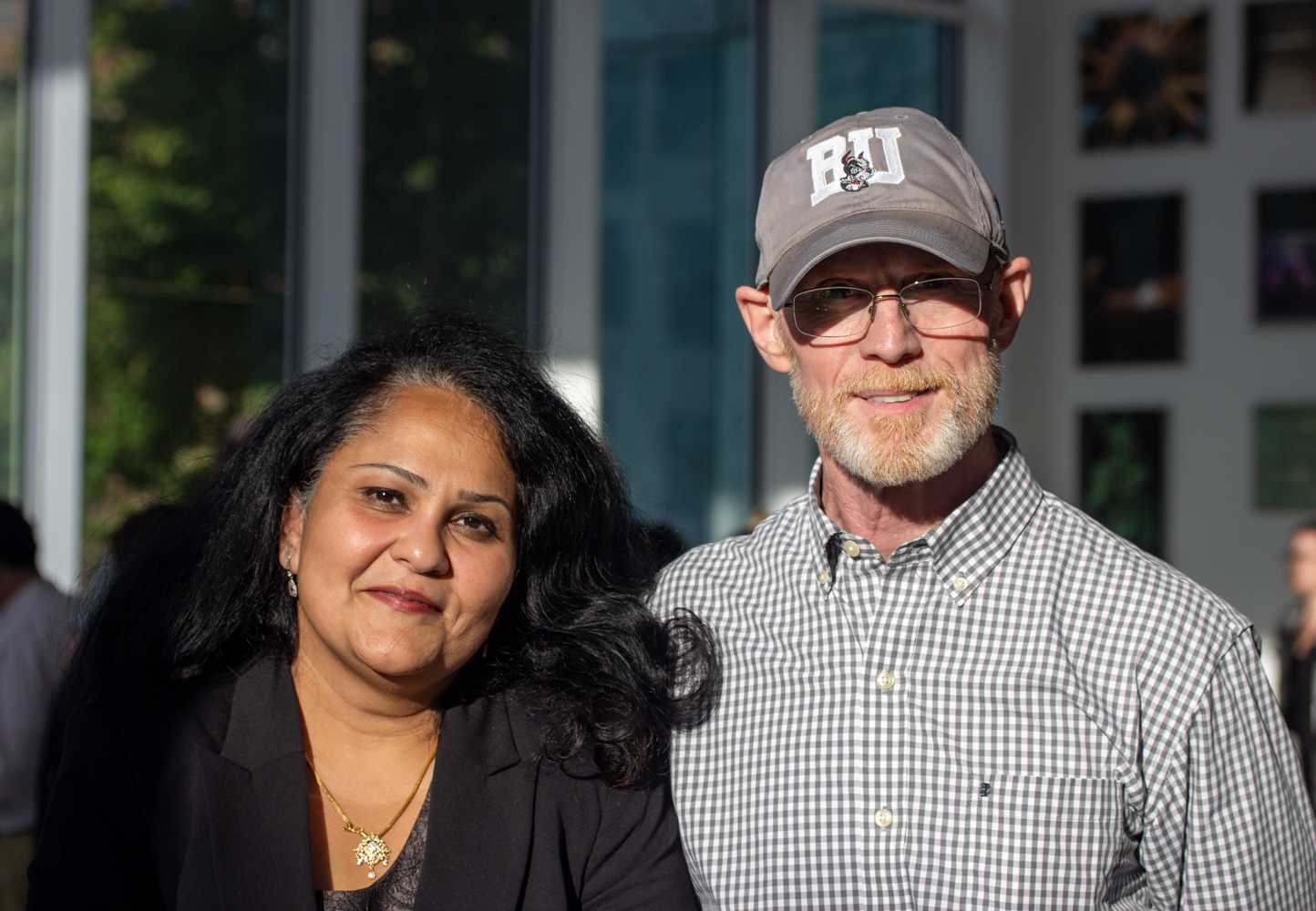
Reviving memories, analyzing our attention spans and predicting brain organization, 10 Boston University researchers shared their research to BU students and faculty.
The Rajen Kilachand Life Science Building hosted a Research on Tap event titled “Neuromonitoring Brain Health and Recovery” which showcased ten different professors who shared their research in five minute presentations last Wednesday.
Swathi Kiran, founding director of the center for brain recovery and a professor of Neurorehabilitation at the Sargent College of Health and Rehabilitation Sciences, organized the event.
“What I wanted to do in this event is to highlight the really different research types and research activities that are going on across campus, all looking at neurological disorders in neuroscience,” she said.
Muhammad Huzaifa, a master’s student at Metropolitan College and audience member of the event, said he came to the event to see what research was taking place at BU.
“I want to actually do my PhD in computational neurosciences here at BU so I came here to reach out to professors, see what’s going on in BU,” Huzaifa said.
Huzaifa also said “a lot of brain research” is happening at BU, includingsome at The Center for Brain Recovery which Kiran founded.
“This specific center is focused on brain recovery and brain health,” Kiran said. “We’re studying people who have had strokes, will have dementia. Anything that affects the brain and then impacts their ability to do everything in their life.”
Stephen Parnell, an audience member, said he came to the event since Kiran treated him four and a half years ago after he experienced a stroke. Before being referred to BU’s Aphasia Resource Center, Parnell said he went to speech therapy for 43 days and only knew six words.
“As soon as I got over here to Boston University, this Aphasia Resource Center, I was like this is exactly what I need,” Parnell said.
Parnell, since his stroke, has done interviews and made television appearances about his experience and recovery from aphasia.
“It’s amazing how far he’s come,” Kiran said.
Mike Esterman, associate professor of psychiatry, discussed his research on increasing people’s attention.
“The hope is that … if we can intervene and find ways to improve sustained attention, we can improve things like mental health outcomes, safety and people’s daily function,” Esterman said.
David Boas, professor of biomedical engineering presented his research at the event as well.
Boas described how his team is researching new ways to collect neurological data without having to use fMRI scans — often an expensive process.
“We want to take portable, wearable neuroimaging technology, so not fMRI, and we want to study brain function and complex, dynamic and multi-sensory real world environments to better understand the brain in its natural environment,” Boas said in his presentation.
Antonio Ortega, a fifth-year doctoral student, works at Boas’ laboratory.
“One of the things I hope is to help in low resource settings and also the wearable and low-cost devices helps spread neuroscience research to other universities and other countries,” Ortega said.
Kiran said there are many ways for students to get involved in research including signing up for research opportunities through Undergraduate Research Opportunities Program, volunteering for professors or receiving grants from professors.
“It would be great for students at BU to get involved in this research because it’s something they’re looking for as a topic,” Kiran said. “And this is so satisfying to be doing because you can make a difference in people’s lives.”




















































































































